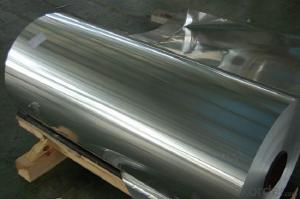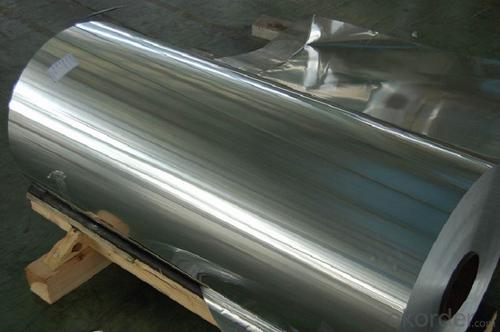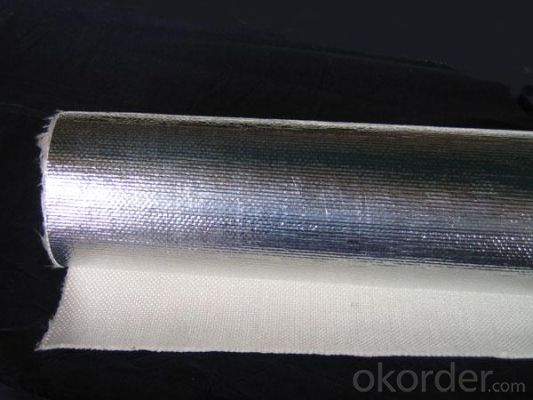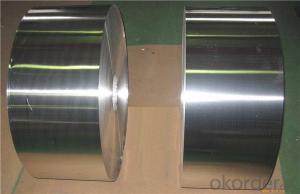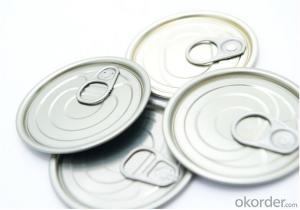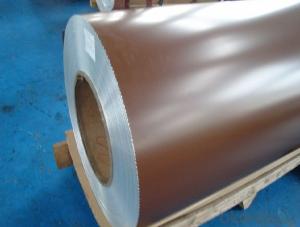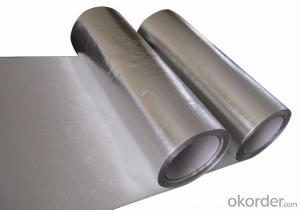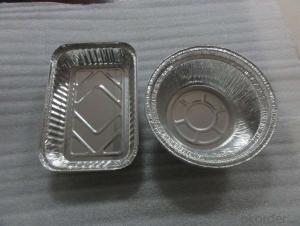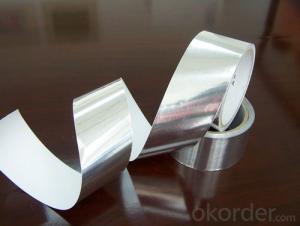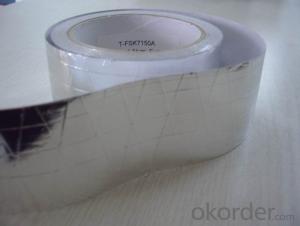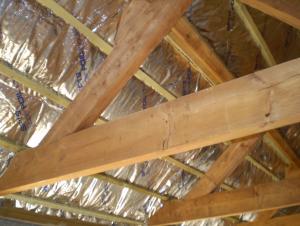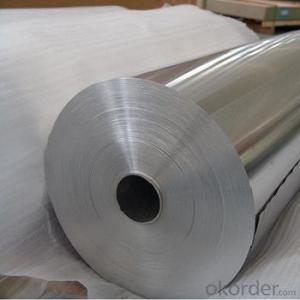Aluminum Coil Anodizing Aca Corporation F/R Double Side Reflective Aluminum Foil Insulation
- Loading Port:
- Shanghai
- Payment Terms:
- TT OR LC
- Min Order Qty:
- 10 m.t.
- Supply Capability:
- 10000 m.t./month
OKorder Service Pledge
OKorder Financial Service
You Might Also Like
l Product Construction:
Composition | Description | Value (English) | Value (Metric) |
Foil | Aluminum | 0.28 mil | 7 micron |
Reinforcing - MD | Fiberglass | 2 / inch | 8 / 100mm |
Reinforcing - XD | Fiberglass | 3 / inch | 12 / 100mm |
Kraft | Natural | 49 lbs / 3000 ft2 | 80gsm |
Adhesive | Flame-Retardant Glue | ------ | ------ |
Foil | Aluminum | 0.28 mil | 7 micron |
l Packaging & Delivery
Packaging detail: Standard seaworthy exporting carton, Wooden
pallets, waterproof paper and plastic coverage or or
as customer's requirements
Delivery detail: about 25 days from received oiginal L/C or advance
payment
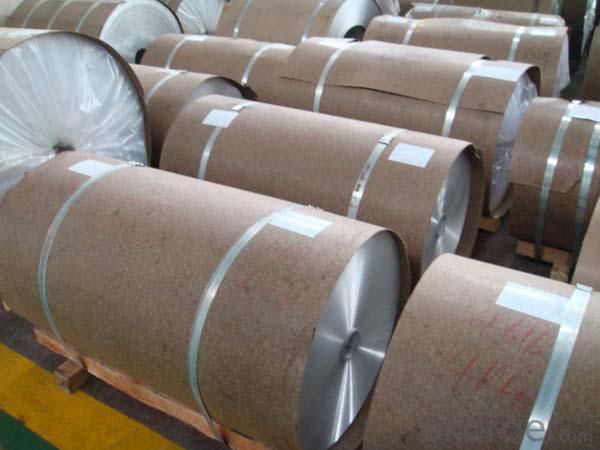
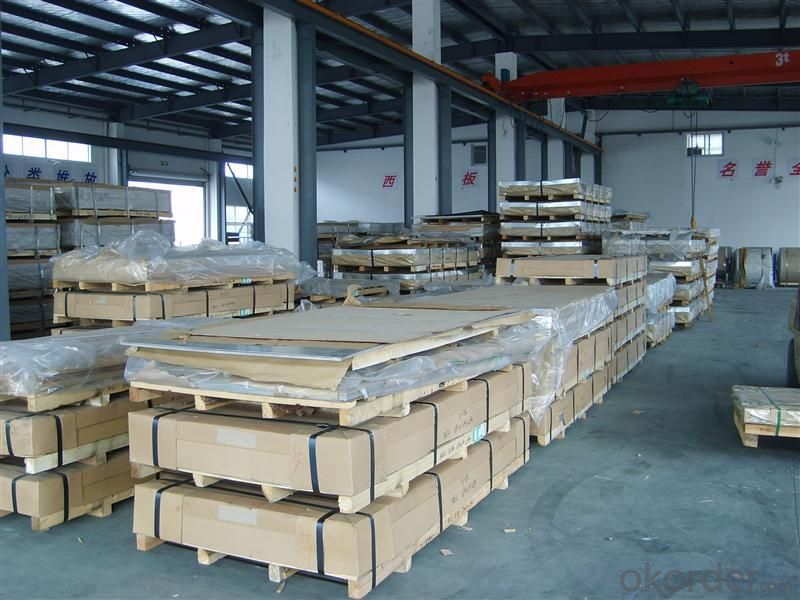
l Company Profile
CNBM International Corporation, China National Building Materials (Group) Corporation, is one of the largest companies in China building material & equipment industry, with 42,800 employees and sales in 2005 of US Dollar 4.395 billion. In 2006, China National Building Material Company Limited was listed on Hong Kong Stock Market with the stock code as 3323.
The business scope of CNBM covers from manufacturing and sales of a series of building materials to scientific research and design, import and export trade. In many of these fields, CNBM is playing the leading role.
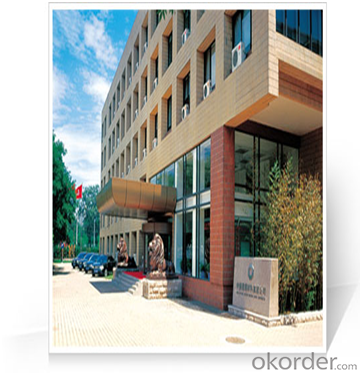
l Product Images
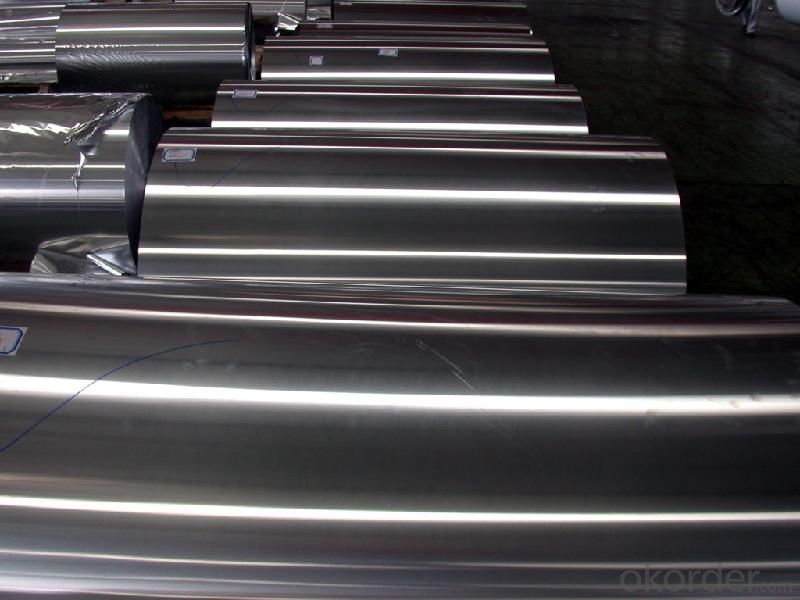
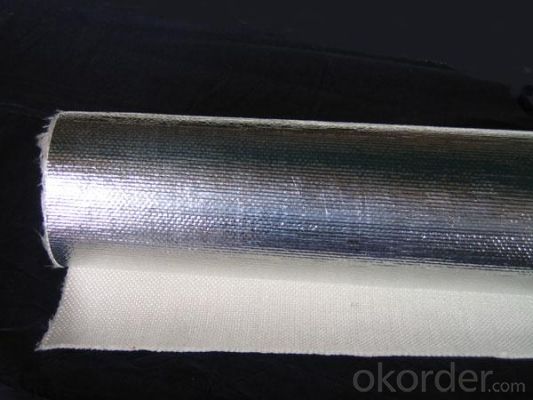
l FAQ
Q: Do you provide free samples?
A: Yes, free samples will be sent to you on freight at destination.
Q: Can I get your latest products catalogue?
A: Yes, it will be sent to you in no time.
Q: What is the MOQ?
A: 10 tons
Q: What are your payment terms?
A: We accept L/C, T/T.
l Contact Us
Email:service@okorder.com
- Q: How to pull the aluminum coil purchased into aluminum sheet?
- You can buy flat sheet directly next time to avoid trouble.
- Q: Can aluminum coils be used in the production of household appliances?
- Yes, aluminum coils can be used in the production of household appliances. Aluminum is a lightweight and durable material that has excellent thermal conductivity, making it ideal for applications in appliances such as refrigerators, air conditioners, and heat pumps. Aluminum coils are commonly used in the condenser and evaporator coils of these appliances, where they help transfer heat efficiently. Additionally, aluminum coils are resistant to corrosion, which is important for ensuring the longevity and performance of household appliances. Overall, aluminum coils are a popular choice in the production of household appliances due to their properties and benefits.
- Q: How do aluminum coils contribute to sustainable transportation?
- Aluminum coils contribute to sustainable transportation by offering lightweight and corrosion-resistant properties, making them ideal for manufacturing various components in vehicles. By using aluminum coils, vehicles can be made lighter, resulting in improved fuel efficiency and reduced emissions. Additionally, the recyclability of aluminum ensures that it can be reused, reducing the need for virgin materials and minimizing environmental impact.
- Q: How do aluminum coils compare to ceramic coils in terms of thermal conductivity?
- Aluminum coils have significantly higher thermal conductivity compared to ceramic coils.
- Q: What are the different surface treatments available for aluminum coils?
- Some of the different surface treatments available for aluminum coils include anodizing, painting, laminating, and powder coating. Anodizing involves creating a protective oxide layer on the surface of the aluminum, which improves corrosion resistance and provides a decorative finish. Painting involves applying a layer of paint onto the surface, offering both aesthetic customization and protection against corrosion. Laminating involves bonding a thin layer of protective film onto the surface of the aluminum for added durability and resistance to scratches. Powder coating involves applying a dry powder onto the surface, which is then heated and cured to form a durable and decorative finish. These various surface treatments offer different benefits and can be chosen based on the specific requirements of the application.
- Q: how tall is a crushed aluminium soda can compared to a non crushed one.i need measurements in centimeters please.ALSO!! AN IMAGE that actually has both of the two with the measurements would be SUPER HELPFUL
- I recognize that there are places in this world where aluminum beverage cans are very exotic, very rare, and may even be quite expensive. I can also understand that, in such a special place, one may have never actually held one of these objects in your own hands. If you live in such a place, then I can understand why you need to seek assistance on Yahoo Answers. I am, personally, quite surprised that you would have internet access in such a place. For your answer... it depends on how you crush the can but it is quite possible to crush your standard aluminum beverage can to a thickness of fractions of a centimeter.
- Q: What are the safety considerations when working with aluminum coils?
- When working with aluminum coils, there are several safety considerations that should be taken into account to ensure the well-being of workers and prevent accidents. Firstly, it is important to wear appropriate personal protective equipment (PPE) such as gloves, safety glasses, and protective clothing. This will help protect against cuts, abrasions, and burns that can occur while handling sharp edges or during the coil manufacturing process. Secondly, aluminum coils should be stored properly to prevent any potential hazards. They should be stacked in a stable manner, taking into consideration the weight and height of the stack. Additionally, coils should be stored in a well-ventilated area to prevent the accumulation of flammable gases or vapors. When working with aluminum coils, it is crucial to be aware of the potential risks associated with the material. Aluminum can be a combustible material, and certain factors such as high temperatures and contact with sparks or open flames can increase the risk of fire. Therefore, it is important to keep the work area clean and free from any flammable materials or sources of ignition. Moreover, aluminum coils should be handled with care to avoid injuries. They can be heavy and may require the use of appropriate lifting equipment or techniques to prevent strains or musculoskeletal injuries. Workers should be trained on proper lifting techniques and be aware of their physical limitations to prevent accidents. Furthermore, when cutting or shaping aluminum coils, it is important to use appropriate tools and machinery. Workers should be trained on the safe operation of these tools and machinery to prevent injuries. It is also important to regularly inspect and maintain the equipment to ensure its safe functioning. Finally, it is important to follow proper handling and disposal procedures for aluminum coils. This may include considering recycling options to minimize waste and environmental impact. Overall, safety considerations when working with aluminum coils include wearing appropriate PPE, storing them properly, being aware of potential fire hazards, handling them with care, using appropriate tools and machinery, and following proper handling and disposal procedures. By adhering to these safety measures, the risk of accidents and injuries can be greatly reduced.
- Q: Are aluminum coils suitable for heat sinks?
- Yes, aluminum coils are suitable for heat sinks. Aluminum is a lightweight, highly conductive material that efficiently transfers heat away from electronic components. Its excellent thermal conductivity and corrosion resistance make it a popular choice for heat sink applications.
- Q: What benefits does anodized aluminum offer when compared to regular aluminum coils?
- <p>Anodized aluminum coils offer several advantages over standard ones. They have enhanced corrosion resistance due to the protective oxide layer formed during the anodizing process. This layer also improves wear resistance and increases the coil's durability. Anodized coils can be easily colored, providing a wide range of aesthetic options without affecting the material's performance. Additionally, the anodized surface is more resistant to scratches and can maintain a polished appearance longer. Overall, anodized aluminum coils are more robust, visually appealing, and longer-lasting compared to standard aluminum coils.</p>
- Q: Are aluminum coils suitable for high-pressure applications?
- No, aluminum coils are not suitable for high-pressure applications.
Send your message to us
Aluminum Coil Anodizing Aca Corporation F/R Double Side Reflective Aluminum Foil Insulation
- Loading Port:
- Shanghai
- Payment Terms:
- TT OR LC
- Min Order Qty:
- 10 m.t.
- Supply Capability:
- 10000 m.t./month
OKorder Service Pledge
OKorder Financial Service
Similar products
Hot products
Hot Searches
Related keywords
